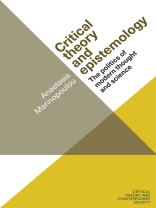This volume in the Critical Theory and Contemporary Society series explores the arguments between critical theory and epistemology in the twentieth and twenty-first centuries. Focusing on the first and second generations of critical theorists and Luhmann’s systems theory, the book examines how each approaches epistemology. It opens by looking at twentieth-century epistemology, particularly the concept of lifeworld (Lebenswelt). It then moves on to discuss structuralism, poststructuralism, critical realism, the epistemological problematics of Foucault’s writings and the dialectics of systems theory. The aim is to explore whether the focal point for epistemology and the sciences remain that social and political interests actually form a concrete point of concern for the sciences as well.
Table of Content
Introduction
1 Phenomenology and hermeneutics
2 Structuralism and poststructuralism
3 Modernism and postmodernism
4 Systems theory
5 Critical realism
Conclusions
Index
About the author
Anastasia Marinopoulou is Lecturer in Political Theory and Philosophy at the Hellenic Open University and Associate Editor of the international edition of
Philosophical Inquiry











